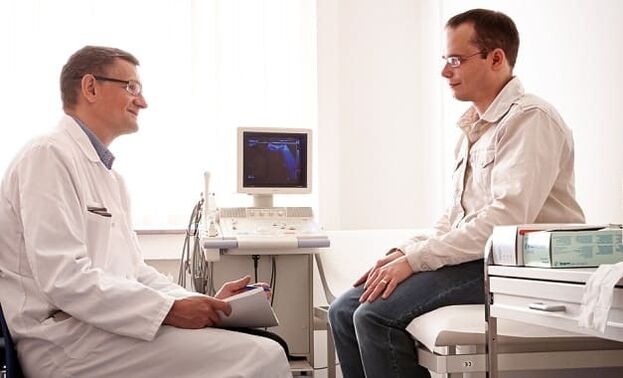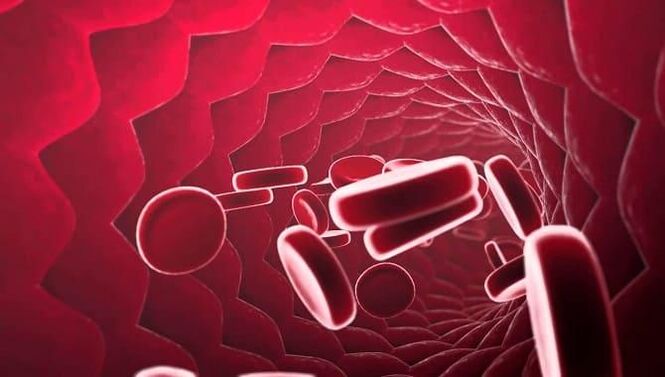Prostatitis is an inflammation of the prostate, accompanied by affected sexual function, urinary tract disorders.It is diagnosed based on prostatic juice bakposev data, clinical blood tests and pelvic organs ultrasound.Tablets from prostatitis destroy pathogen flora in the prostate gland, restore urine and stop pain.Conservative therapy includes different acts of action - antibiotics, muscle relaxants, analgesics, and antashsia.
A complex approach to treatment
With uncomplicated prostatitis, they use conservative treatment.The basis of therapy is two types of drugs:
- Etiotropic (antibiotics, antiviral agents, antimicrobials) - destroying agents of infection;
- Symptoms (non -narcotic analgesics, muscle relaxants, antihistamines) - stop symptoms or reduce their severity.
In the case of chronic inflammation, prostate massage and physiotherapeutic procedures are prescribed - laser therapy, magnetotherapy, transurethral microwave thermotherapy.
The type of drug used
Tablets for prostatitis are prescribed by doctors.With inflammation of the prostate gland, it is treated with patients.Therapy includes drugs of several pharmacological groups:
- antibacterial;
- antispasmodic;
- painkillers;
- vasodilating;
- sedative;
- Immunostimulating.
Medication options are affected by the severity of the clinical picture, the type of pathogen, the presence of complications.With prostatitis against the background of uretritis or cystitis, uroseptic is also used - antimicrobials that eliminate infections in all parts of the urinary system.

Before prescribing medications, the andrologist performs the examination, where prostatitis is distinguished from the disease with the same symptoms - bladder neck cancer, adenoma and prostate carcinoma.
Antibiotic
In 8 out of 10 cases, inflammation of the gland is caused by pathogenic bacteria.Therefore, with prostatitis, antimicrobial drugs are prescribed in men.They prefer antibiotics that can penetrate the gland tissue and create a high concentration in it.
Recommended drugs:
- Macrolides;
- fluoroquinolones;
- Tetracyclines.
The first improvement can be seen 2-3 days after the onset of therapy.But to destroy the pathogen flora in the genitourinary system, antibiotics take at least 4 consecutive weeks.
In chronic prostatitis, medications are not prescribed that are not accumulated in the prostate gland tissue.Therefore, aminoglycosides are never used for treatment.

The therapeutic effect of most antimicrobial drugs depends on the dose.In the treatment of acute inflammation, it is very important to take tablets at the dose needed for bacterial effects.
Anti -inflammation and painkillers
Anti -steroidal drugs (NSAIDs) are the best drugs for pain and inflammation in the genitourinary system.Most of the ways this group prevents the production of special enzymes (cyclooxygenase), which causes inflammatory reactions.
Acute prostatitis causes severe pain in the pelvic and perineum area.
Inflammation licks increases the risk of hyperplasia and prostate adenoma.Therefore, patients with chronic prostatitis are also prescribed medications that inhibit the growth of gland tissue.
Alpha-blockers
Prostatitis is accompanied by inflammation and an increase in the gland, in which the urethra is compressed.As a result, urinary tract disorders occur - slow and incomplete emptying of the bladder, pain.Alpha blockers are used to restore urine.They relax the smooth muscle, which extends the inner diameter of the urethra and neck of the bladder.

Medications of this group develop vessels and arteries, lower blood pressure.
Alpha blockers can be associated with a group of urodynamic cornea.They do not eliminate the cause of the disease, but facilitate urination.The effect is recorded 1-2 weeks after the onset of therapy.
Sedative
For treatment in men, prostatitis is often used sedative.The disease negatively affects the quality of life, causes urinary problems, erectile dysfunction.This is the cause of neuropsychiatric disorders - emotional failure, depression, neurosis.
To improve the condition of the Psycho -Emotional, the drugs are used:
- normalizing the functioning of the nervous system;
- relieving irritation;
- increase sleep;
- Increase pressure resistance.

Sedative drugs increase the effects of antipsychotic and sedative.Therefore, before taking the pill, you should consult your doctor.
Musorelaxants
With recurrent prostatitis, muscle relaxants are prescribed - medicines that have a relaxing effect on smooth muscle.They eliminate the tension of the bladder, the urethral tract.To achieve the maximum relaxation effect, it is used in combination with NSAIDs.Musorelaxants reduce the concentration of non -narcotic analgesic, which prevents gastrointestinal mucosa irritation.
Muscle relaxant preparations are used exclusively with high muscle tone, urinary tract cramps or bubbles.Overdosis is full of nausea, muscle aches, respiratory inhibition.
Musorelaxants are contraindicated in intestinal ulcer 12, psychosis, epilepsy and Parkinson's disease.
Restore blood flow
To cure the prostate, it is necessary to increase blood supply to the pelvic organs.With blood flow, the organs receive nutrients, which stimulate metabolism and regeneration of damaged tissues.Systematic drug use prevents congestion, edema edema and compression of the urethra canal.
For the treatment of glands, the drugs with the following properties are prescribed:
- Vasodilating - increases blood capillary diameter and blood flow to the pelvic organs;
- angioprotective - increases vascular wall density, prevents swelling;
- Antiplatelet - Prevents platelet adhesive.
Preparation to restore blood flow to the pelvis is used to treat men with moist prostatitis.
Medicines are used exclusively in complex therapies.To prevent gastric mucosa irritation, tablets are taken after meals.
Immunomodulators
It is recommended to treat prostatitis with drugs that stimulate the operation of the immune system.They increase the resistance to infection, which reduces the likelihood of severity.
Indications for immunomodulator acceptance:
- recurrent prostatitis;
- vitamin-mineral failure;
- Secondary immunodeficiency;
- Chronic bacterial inflammation.

With premature rejection of treating body resistance, infection is reduced.Therefore, the possibility of prostatitis recurrence increases.
To achieve the desired therapeutic effect, immunomodulators are taken in the course for 2-8 weeks.
Phytotherapeutic drugs
Preparation based on plant components and animals does not increase drugs on the body.They are well received, do not trigger severe side effects.
Natural remedies are ideal for the treatment of prostatitis and other urological pathologies such as adenoma or gland hyperplasia.
Preparations based on drug herbs often cause allergic reactions and urticaria.Therefore, with hypersensitivity to components, it is best not to be treated with Phyto-Means.
Vitamin
Vitamin-mineral deficiency is one of the most common causes of the relapse of bacterial infections in the genitourinary system.To strengthen immunity, the lack of nutrients is refilled.Therefore, with prostatitis, vitamined agents are prescribed.
Tablets with some bioactive components add vitamins.Because of this, metabolism is accelerated, cellular immunity is strengthened.
Polyvitamin is recommended to be taken for the prevention of enlargement of prostatitis twice a year - in the fall and spring.They reduce the risk of hypovitaminosis, flu and metabolic disorders.
Self -harm
Prostatitis is a urological disease that often comes into chronic courses.Therefore, it is not recommended to take medication without prescribing a doctor.Self is full of disruption in the work of the urinary system and reproduction.Dangerous irrational therapy:
- chronic prostatitis;
- erectile dysfunction;
- acute urination;
- urolithiasis;
- infertility;
- Suppuration in the prostate;
- Narrowing the urethra.
The selected antibiotics do not destroy the infection, which causes inflammation of the gland.Prostate abscesses are indications for surgical intervention.
Prostatitis is a male disease, inflammation of the prostate gland.With timely and proper treatment, therapy is good.But in the case of transition to a chronic form, it often causes complications.Therefore, at the first signs of prostatitis - difficulty in urinating, pain in the perineum, blood in urine - you should contact a urologist or andrologist.
























